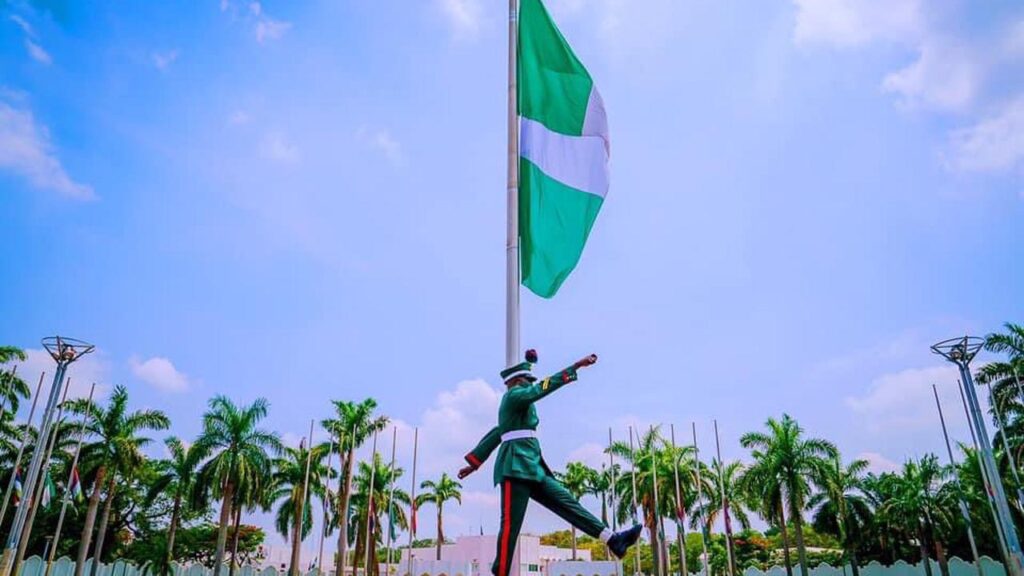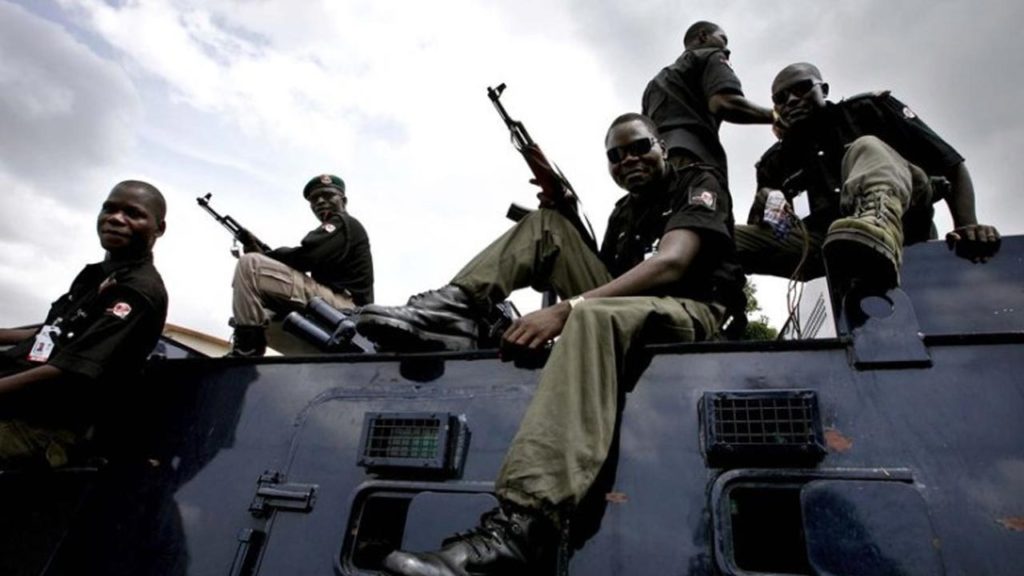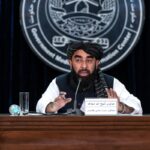
It is broadly assumed or even believed that the only effect of the Ukraine’s conflict with Russia on Africa is almost exclusively on the shortage of food and its contingent crises. Even the disruption of the global value chain already underway by America’s favoured de-coupling was further complicated by the conflict.
Africa, though a minor player in the global value chain, has experienced further decline in engaging the chain both on account of the COVID-19 pandemic whose sinister role was further compounded by the conflict, However, all these affecting Africa pale to insignificance to the prospect that the conflict might bring the end of all lives, including Africa on the planet earth.
Russia has the largest stockpiles of nuclear warheads in the world and has enormous machinery for its deadly delivery. Some strong voices in the country have made it clear that should she go down, it would take the entire mankind along with it. Everyone, including her staunch adversaries, knows very well that Russia has the capability to end all lives on earth. And the U.S.-led 32-member North Atlantic Treaty Organisation (NATO) continues supplies of deadly weapons to escalate the conflict bringing ever closer to popular imaginations – the prospect of nuclear conflagration that would end life on the planet earth.
Currently, there are about nine countries that have nuclear weapons and they are: Russia, the United States of America, China, United Kingdom, France, Pakistan, India, Israel, and North Korea. Together, they possess 12,700 nuclear warheads, out of which 9,400 nuclear warheads are in active military stockpiles. Of all these, Russia possesses the most confirmed nuclear weapons, with 5,997 nuclear warheads.
The U.S. quickly followed with 5,428 nuclear warheads hosted in the U.S. and other fire countries, which are Turkey, Italy, Belgium, Germany, and the Netherlands. The total of the nuclear warheads owned by these two States – Russia and the U.S. – account for 90 per cent of all nuclear weapons in the world.
Among these nuclear arsenals, there are those considered as “tactical” nuclear weapons, and Russia is said to possess non-strategic, tactical nuclear warheads of 1,912 while about one hundred of U.S. tactical non-strategic warheads are deployed in five European countries. However, most times, “tactical” nuclear warheads are categorised or framed as “smaller” or “low yield” nuclear weapons and implied to be less lethal and devastating.
However, these so-called “low yield” nuclear weapons produce explosions of up to 300 kilotons, which is 20 times that of the bomb that destroyed the Japanese city of Hiroshima on the 6th of August 1945. Three days later, on the 9th, the U.S. dropped another bomb on the Japanese city of Nagasaki. The two lethal bombings, apart from razing the two cities to the ground, killed 226,000 people most of whom were civilians. The U.S. nuclear attack of the Japanese cities remained the only instance of the use of nuclear weapons in armed conflicts.
It should be noted that the grade of the monster weapons has not only escalated but have since proliferated with nine countries known formally and informally to possess them. Russia is outstanding for her largest stockpiles of this end-of-life weapon. And when the U.S.-led NATO military alliance proclaimed openly that its aim in the current proxy war with Russia for which Ukraine is only, a contact point, is to strategically “defeat” Russia, a heavily armed State, it should invite concerns and especially in Africa which do not seek or possess these end time weapons, but is most likely to bear the brunt of its use.
The Russian nuclear doctrine, as other States, is that when the State is militarily threatened, it could resort to self-immolation by using nuclear weapons with its consequence of drawing to a close, the curtain of humanity, including Africa. And the interpretation of existential threat to the State is exclusively within the domain of the State concerned. In this regard, Africa cannot afford to watch U.S.-led NATO proxy war with Russia continue or even escalate.
Russia insists that the start of what it called “special military operation” last year was not the beginning of the war, but a last-ditch effort to end the war began in Ukraine in 2014 after the U.S. instigated a coup that removed a democratically elected government in Ukraine, which was friendly to Russia.
The installation of virulent anti-Russian regime in Ukraine, following the so-called maiden or coloured revolution in 2014, would give rise to Ukraine’s State policy of targeting ethnic Russians, which constitute 17.3 per cent of Ukraine’s population among other ethnic nationalities. Such draconian measures as removing Russian language as a means of instruction, especially in the Donbass region of Ukraine where most ethnic Russians live in majority, triggered the Ukraine Civil war.
The negotiations to the end of the conflict in neighbouring Belarus, which culminated in the Minsk I and II agreement was a dialogue on interim self-government, set out terms of the end of the conflict within Ukraine’s sovereignty. Among others is the 13-point deal of the Minsk II agreement for Donetsk and Luhansk or the Donbass region in accordance with Ukrainian law and acknowledgement of special status by the Ukraine parliament.
Apart from the representatives of Russia, Ukraine, the Organisation for Security and Cooperation in Europe (OSCE), and the leaders of Donetsk and Luhansk that signed the 13-point agreement in February 2015, the leaders of France, Germany, Russia, and Ukraine joined in Minsk to mark the occasion and issued a declaration of support.
It is very instructive to state here that the regime in Ukraine completely refused to implement the Minsk agreement and very recently, the Ukrainian president then, Mr. Poreshenko, said that from the very beginning, Ukraine has no intention to abide by the Minsk agreement; rather, it had used the period of lull offered by the agreement to build a strong army and amass deadly weapons.
What the Kiev regime did subsequently was to undertake earth-scored military and cultural anti-Russia measures designed to eradicate Russian identity. Even during the current conflict, the Germany and France leaders at that time, Chancellor Angela Merkial and Francois Hollande have echoed similar remarks that the Minsk agreement was agreed by Ukraine and the West to deceive both the Russian Federation and ethnic Russians in Ukraine.
Ukraine’s next step was stringent military pacification of the Donbass region and Western-induced demand to join the North Atlantic Treaty Organisation (NATO). The Russia State insist clearly that the military and cultural war to eradicate ethnic Russians and to encircle Russia herself with hostile NATO offensive military equipment was the reason, it started the special military operation to end the war against ethnic Russians in the Donbass region and guarantee its own national security by stopping the Ukraine’s regime from acting a surrogate of the western military alliance to destroy Russia.
While all these mixes have triggered Europe’s most brutal war since after the second war, the strategic aim to defeat Russia, as the U.S.-led NATO has proclaimed should be of immediate concern to Africa.
Africa through the African Union should send an unmistakable signal to the U.S. and its NATO military alliance, that such an objective as to “defeat” a nuclear-armed State portends immediate danger to humanity, including Africa, and should not be pursued.
The American side and her Western allies should bear responsibility for the war in Ukraine, having notoriously used the period of lull offered by the Minsk agreement to build the Ukraine army and equip it with lethal weapons. Africa should immediately urge the NATO alliance to end its supply of deadly weapons to Ukraine as such measures could make Russia desperate and force her to reach to her nuclear arsenals.
To be taken seriously, the Africa Union should propose a series of measures, including a united Africa resolution at the UN, condemning the dangerous transfer of heavy weapons to Ukraine that might even end up in Africa, potentially stoking new conflicts or escalating the existing ones. Africa should take such other measures as reducing political, military and economic contacts with NATO alliance member States until they start to genuinely encourage Ukraine’s regime to start immediate and meaningful negotiations on the basis of the existing reality on the ground.
Africa should further take a firm stand that NATO, which is a product of the cold war, has outlined its usefulness in the context of the emerging multi-polar international order and should commence immediate steps to disband. These modest measures, if concretely advanced by the African Union (AU), can be the basis for the end of the Ukraine/Russia war and avoid the prospects of thermonuclear disaster that could spell the end of humanity.
• Onunaiju, research director of Abuja-based Think Tank












